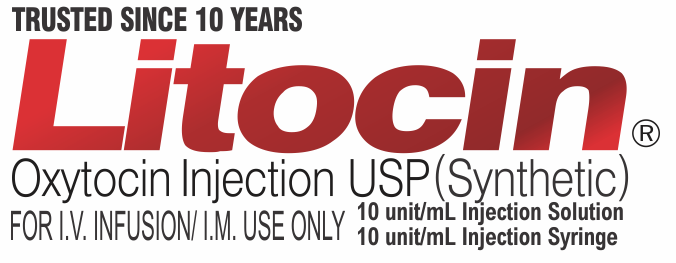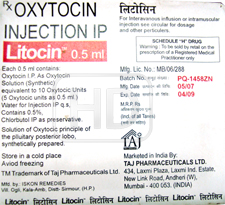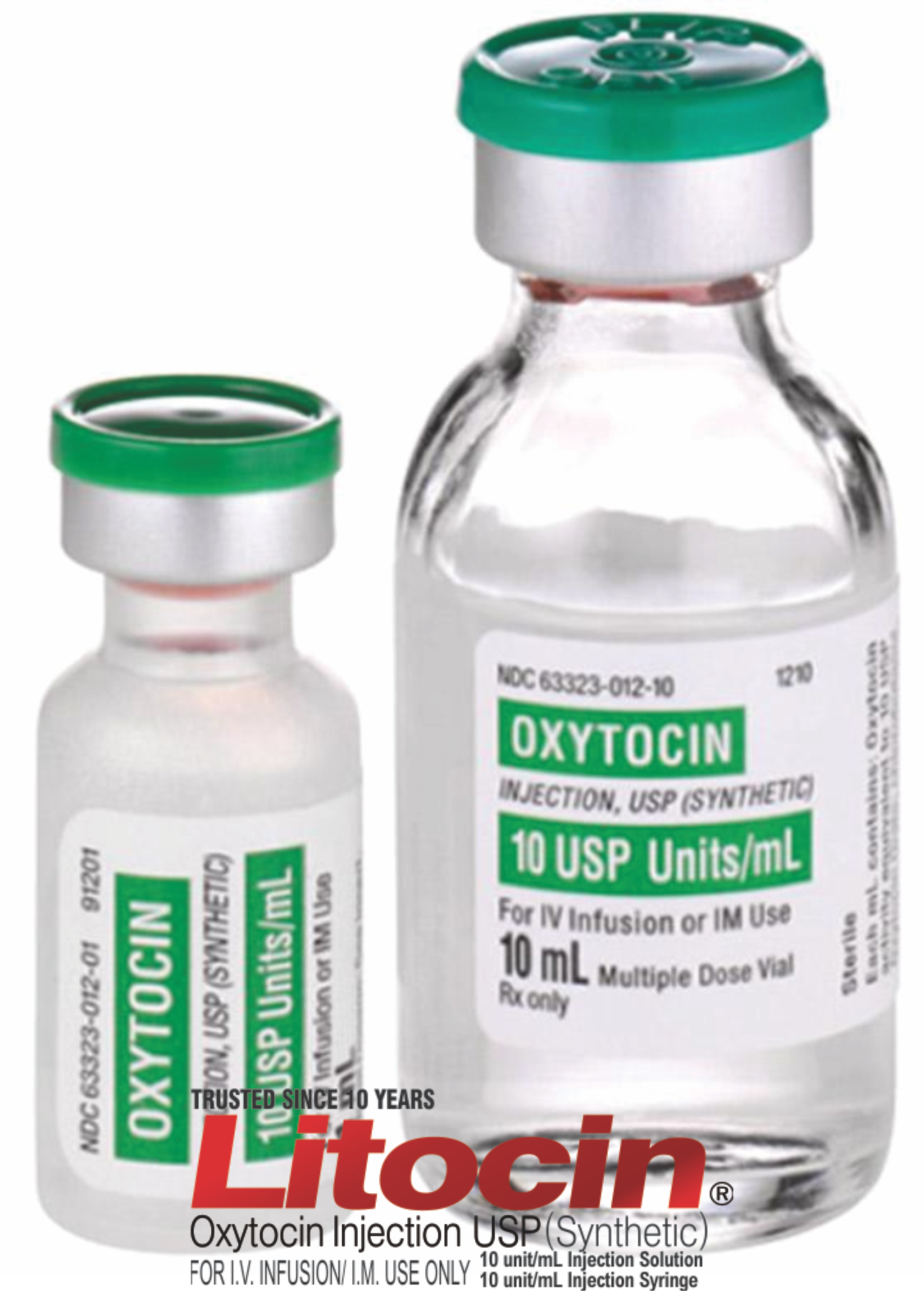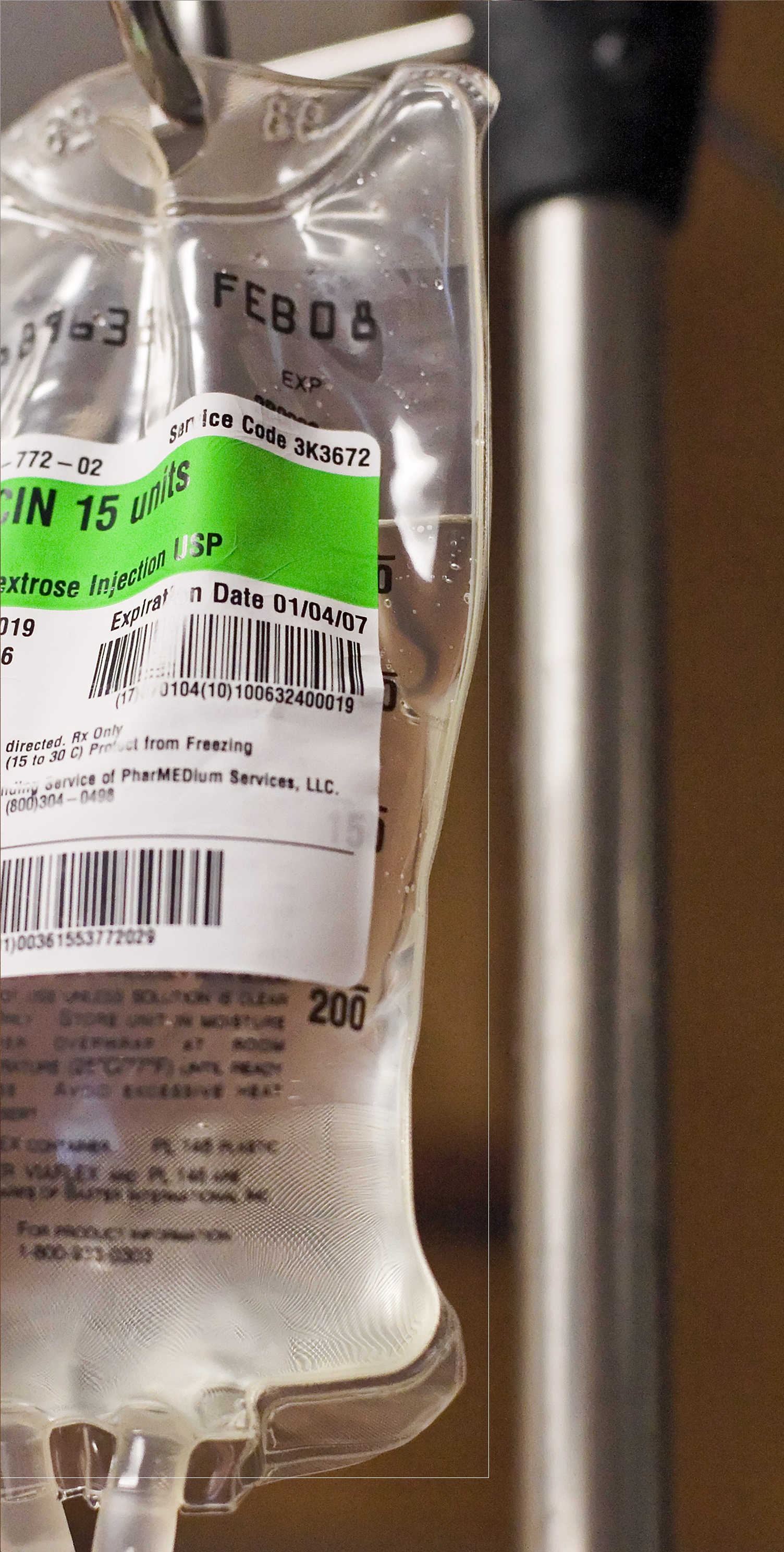|
|
Categories: Human
Healthcare, Liquid Injections
Oxytocin Injection USP 10IU/ml
GENERIC NAME:Oxytocin
COMPOSITION:Each ml Contains:
Oxytocin ……………… 10IU
IT IS ALSO USED TO HELP ABORT THE FETUS IN CASES OF INCOMPLETE
ABORTION OR MISCARRIAGE, PRODUCE CONTRACTIONS DURING THE THIRD
STAGE OF LABOR, AND CONTROL BLEEDING AFTER CHILDBIRTH. OXYTOCIN
IS A UTERINE STIMULANT. IT WORKS BY CAUSING UTERINE CONTRACTIONS
BY CHANGING CALCIUM CONCENTRATIONS IN THE UTERINE MUSCLE CELLS.
DRUG DESCRIPTION
Litocin (oxytocin injection, USP) is a sterile, clear,
colorless aqueous solution of synthetic oxytocin, for intravenous
infusion or intramuscular injection. Litocin is a nonapeptide
found in pituitary extracts from mammals. It is standardized to
contain 10 units of oxytocic hormone/mL and contains 0.5%
Chlorobutanol, a chloroform derivative as a preservative, with the
pH adjusted with acetic acid. Litocin may contain up to 16% of
total impurities. The hormone is prepared synthetically to avoid
possible contamination with vasopressin (ADH) and other small
polypeptides with biologic activity.
INDICATIONS
Litocin is indicated for the initiation or improvement of uterine
contractions, where this is desirable and considered suitable for
reasons of fetal or maternal concern, in order to achieve vaginal
delivery. It is indicated for (1) induction of labor in patients
with a medical indication for the initiation of labor, such as Rh
problems, maternal diabetes, preeclampsia at or near term, when
delivery is in the best interests of mother and fetus or when
membranes are prematurely ruptured and delivery is indicated; (2)
stimulation or reinforcement of labor, as in selected cases of
uterine inertia; (3) as adjunctive therapy in the management of
incomplete or inevitable abortion. In the first trimester,
curettage is generally considered primary therapy. In second
trimester abortion, oxytocin infusion will often be successful in
emptying the uterus. Other means of therapy, however, may be
required in such cases.
DOSAGE
The dosage of oxytocin is determined by the uterine response and
must therefore be individualized and initiated at a very low
level. The following dosage information is based upon various
regimens and indications in general use.
Administration
The initial dose should be 0.5-1 mU/min (equal to 3-6 mL of the
dilute oxytocin solution per hour). At 30-60 minute intervals the
dose should be gradually increased in increments of 1-2 mU/min
until the desired contraction pattern has been established. Once
the desired frequency of contractions has been reached and labor
has progressed to 5-6 cm dilation, the dose may be reduced by
similar increments. Studies of the concentrations of oxytocin in
the maternal plasma during Litocin infusion have shown that
infusion rates up to 6 mU/min give the same oxytocin levels that
are found in spontaneous labor. At term, higher infusion rates
should be given with great care, and rates exceeding 9-10 mU/min
are rarely required. Before term, when the sensitivity of the
uterus is lower because of a lower concentration of oxytocin
receptors, a higher infusion rate may be required.
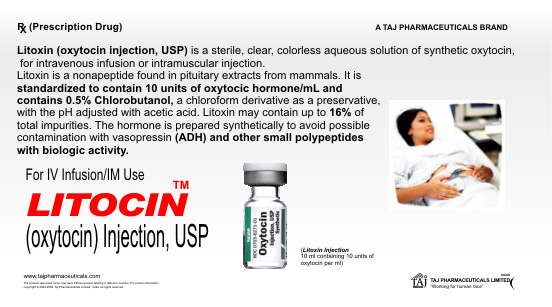
SIDE EFFECTS
Anaphylactic reaction
Postpartum hemorrhage
Cardiac arrhythmia
Fatal afibrinogenemia
Hypertensive episodes
Nausea
Vomiting
Premature ventricular contractions
Pelvic hematoma
Subarachnoid hemorrhage
Hypertensive episodes
Rupture of the uterus
Excessive dosage or hypersensitivity to the drug may result in
uterine hypertonicity, spasm, tetanic contraction, or rupture of
the uterus.
The possibility of increased blood loss and afibrinogenemia should
be kept in mind when administering the drug.
CONTRAINDICATIONS
1. Where there is significant cephalopelvic disproportion;
2. In unfavorable fetal positions or presentations, such as
transverse lies, which are undeliverable without conversion prior
to delivery;
3. In obstetrical emergencies where the benefit-to-risk ratio for
either the fetus or the mother favors surgical intervention;
4. In fetal distress where delivery is not imminent;
5. Where adequate uterine activity fails to achieve satisfactory
progress;
6. Where the uterus is already hyperactive or hypertonic;
7. In cases where vaginal delivery is contraindicated, such as
invasive cervical carcinoma, active herpes genitalis, total
placenta previa, vasa previa, and cord presentation or prolapse of
the cord;
8. In patients with hypersensitivity to the drug.
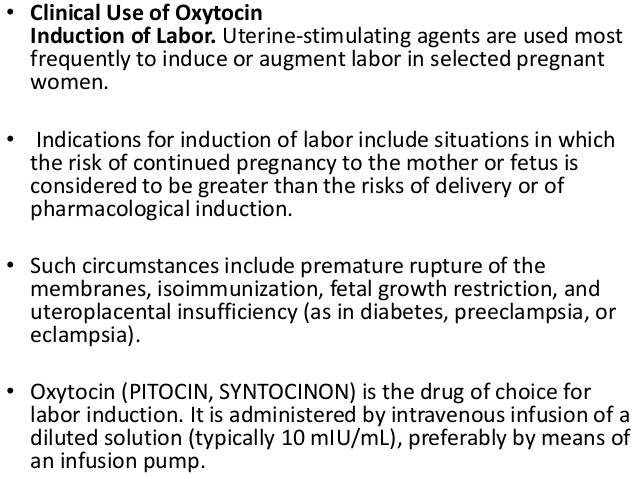
Presentation
Litocin Injection PACK
SIZE: 1ml ampoule
|
|



